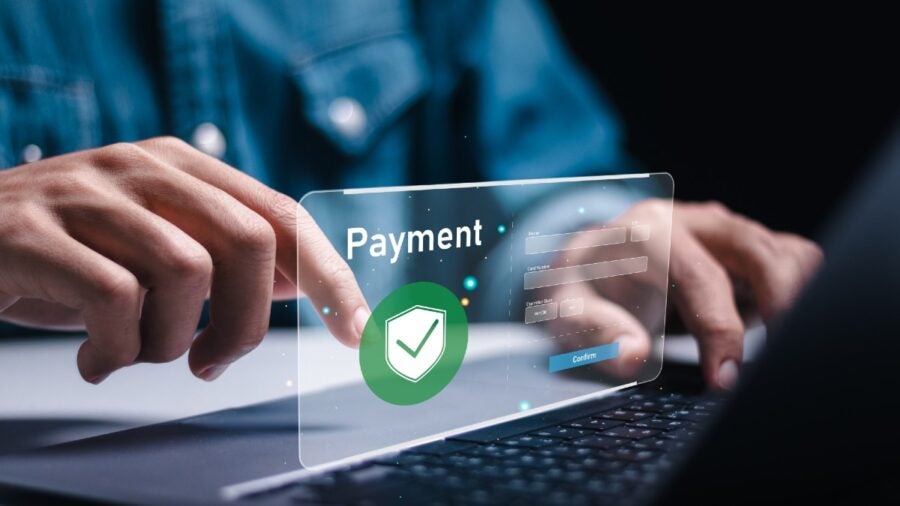
The way consumers engage with content has transformed over the past decade. PC games, in-game items, subscription services and micro-transactions are now key components of a vast digital-entertainment industry – and digital marketplaces are the trusted means of accessing them.
As these marketplaces have flourished, consumer expectations around payment experiences have also evolved.
“In the early days of ecommerce, people were willing to accept a longer process if it meant their data was secure,” says Bartosz Skwarczek, founder of G2A, the world’s largest marketplace for digital entertainment. “Today, users expect instant, seamless transactions without compromising trust and time.”
Users of such services now expect security measures comparable to those in consumer banking. But any protections must not introduce unnecessary friction into the user journey.
Striking the right balance can be challenging for leaders in the digital-marketplace sector.
“If the payment process is too clunky, customers abandon their carts,” says Skwarczek. “But if it’s not designed with security in mind, you risk exposing users – and the platform – to fraud. The goal is to make it both seamless and secure.”
G2A solves the issue with intelligent, adaptive security tools that work silently in the background to detect threats in real time.
“We’ve implemented AI-driven fraud analytics and manageable verification protocols,” Skwarczek explains. “These systems learn from patterns and adjust risk profiles instantly, so we can stop suspicious activity without blocking genuine users.”
When additional verification is needed, communication helps to prevent frustration and instead builds trust between the user and the marketplace.
“When a buyer is asked for extra verification, we explain why,” says Skwarczek. “We show them that this is about protecting their purchase, not slowing them down.”
In fact, managing customer perception is just as critical as implementing security measures, adds Skwarczek.
Supporting growth and innovation
When users feel secure, they’re more likely to become repeat customers, increase their spending and recommend the platform to others.
“We’ve seen this play out at G2A time and again,” says Skwarczek. “Our commitment to top-tier security and fraud prevention, validated by awards and recertifications, directly impacts our bottom line through improved buyer retention and seller confidence.”
When buyers trust the platform, sellers also feel more confident listing premium digital goods, as they know that fraud is minimised and payments are protected.
“This deepens our catalogue, which now includes over 90,000 offerings, from games to subscriptions, gift cards, software and e-learning,” says Skwarczek.
This richer inventory also brings in more buyers, who in turn fuel seller growth. “It’s a cycle we’ve cultivated carefully, and security is the core that keeps the wheel turning smoothly,” Skwarczek explains.
Users who trust a platform also become advocates for it – yet another example of the far-reaching value of proactive, intelligent security measures. “We’ve found that secure payments translate into long-term engagement,” says Skwarczek.
“Customers are more likely to subscribe to newsletters, participate in loyalty programmes and share recommendations when they know their transactions, data and identity are safe.”
Robust security infrastructure drives seller advocacy, too. “When vendors know we’ve invested in compliance standards and intelligent fraud detection, they trust us with their inventory and may tell others about us,” says Skwarczek. “In a digital economy built on reputation, this kind of integrity creates exponential value.”
All of this means that while payment-security measures are often seen as a mundane necessity, in reality, they are the foundation for innovation and growth.
“Our adaptive security infrastructure enables us to confidently expand into new regions, new payment methods and new product categories,” says Skwarczek.
G2A’s resilient and compliant architecture has also enabled it to introduce non-gaming items, gift cards and educational courses to its marketplace.
“Resilience and security is evenly applied across all our payment methods integration – including alternative payment methods and crypto-related products,” Skwarczek explains.
In short, secure and reliable infrastructure is about much more than reactive protection against fraudulent transactions.
By supporting innovation, leaders can drive both revenue and resilience, enabling digital marketplaces to thrive in today’s complex, fast-moving landscape.
For more information please visit g2a.com

The way consumers engage with content has transformed over the past decade. PC games, in-game items, subscription services and micro-transactions are now key components of a vast digital-entertainment industry – and digital marketplaces are the trusted means of accessing them.
As these marketplaces have flourished, consumer expectations around payment experiences have also evolved.
“In the early days of ecommerce, people were willing to accept a longer process if it meant their data was secure,” says Bartosz Skwarczek, founder of G2A, the world’s largest marketplace for digital entertainment. “Today, users expect instant, seamless transactions without compromising trust and time.”






